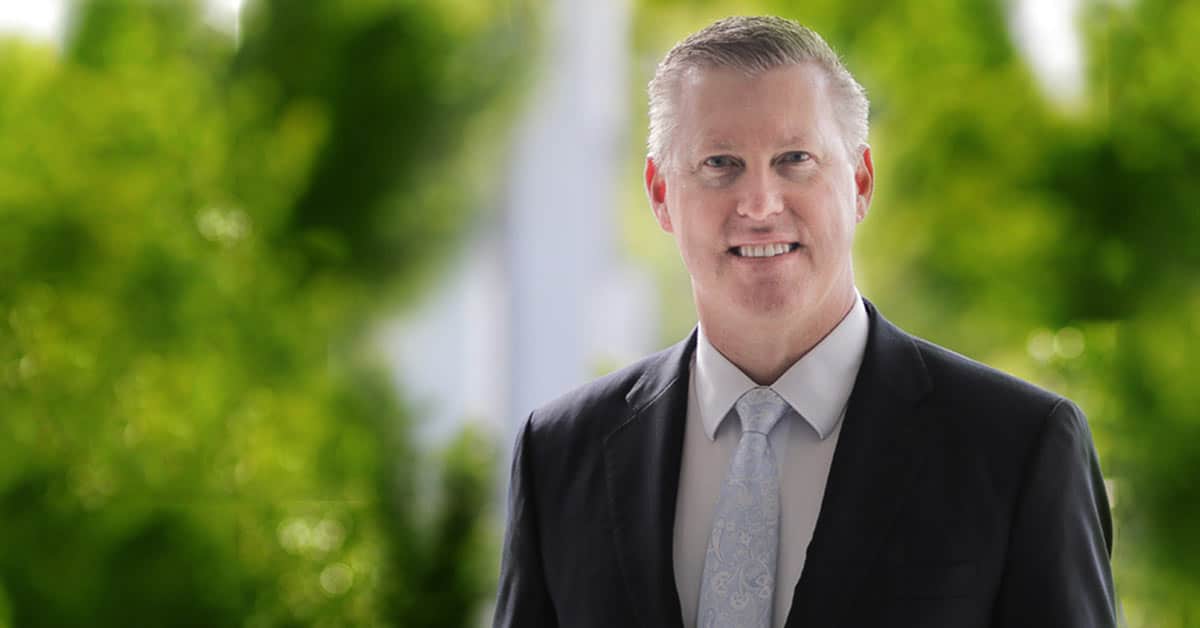The fabric of the traditional family unit has changed and continues to change! Once, Mum, Dad and the 3 kids, were locked into family bliss, or maybe not, but nevertheless they stuck together and consequently from an estate planning perspective, all was relatively easy. But now throw into the mix, second and third marriages, blended families and children that are now adults, who similarly may have broken relationships or other issues, culminating in the once simple estate plan, not being so simple after all.
In this podcast, Estate Planning expert, Richard Dawson of OMB Solicitors discusses the matter.
Podcast: Play in new window | Download
TRANSCRIPT:
Dan: Richard, how complex are families today?
Richard: Very complex, in a word. We have about half of our families are blended families, as you mentioned second and third marriages. Those blended families have children. There’s a number of ways that we can approach estate planning, and there are some common denominators that I always look for in my estate planning with clients so that they can avoid the traps and the pitfalls that may follow. Some of those can avoid family disasters.
Richard: I think one of the most important things that a person can do as part of their estate planning is to discuss the affairs with the family so that the family members have a realistic expectation of what they can expect to receive by way of an inheritance and so that avoids surprises. It’s really important to discuss your intentions about how you plan to divide your estate, before you go, with your children and other loved ones. You should have open and frank discussions with family members so that you can manage their expectations and flush out any areas of conflict that may be unsettled between siblings for many and varied reasons. Adult children have their own expectations and beliefs. They also have their own investment strategies and their own family dynamics. We’re all human; we’ve all got issues. Quite often adult children have predispositions about what they should receive in the form of an inheritance, but more so some of them even expect to receive an inheritance in a certain way.
Richard: What we’re trying to do as part of estate planning is to avoid a conflict in a family after death. Because poor estate, or no planning at all, is a recipe for a family disaster. It can also be an extremely expensive exercise if there is no will in place when someone dies.
Dan: What you’ve just mentioned there … It does certainly deconstruct that whole idea that simply going down to the newsagent and grabbing a will kit isn’t going to cut the mustard.
Richard: The $20 will kit is what you use before you spend thousands and thousands and thousands of dollars on your lawyer fixing up the problem.
Dan: Mm-hmm (affirmative).
Richard: I’ve seen will kits used time and time again, and very few of them are prepared properly and some of them are often invalid and a waste of money and time in the first place.
Dan: There are sort of other examples, I suppose isn’t there … Of organisation, big publicly owned organisations who may offer free wills or whatever the case might be, where you can actually have a lawyer not involved in the construction of these really important documents.
Richard: That’s right. The most commonly used service for free wills is the Public Trustee of Queensland. They promote the free will service, which is a great idea for the community. They do about … From memory, about 35,000 free wills a year. That’s great, but what happens is there a government body and they charge a percentage on your estate administration regardless of how easy or complex it is. With no disrespect to the Public Trustee because there are some very good people who work in there, but they are a government body and we all know that the wheels of the government machine roll very slowly. Whereas, if you’ve got a lawyer engaged in commercial practice, they’re very experienced and they’re usually specialised in estate administration, as am I. We have a lot of systems in place, we’ve got a lot of precedents in place which make estate administration as pain-free as we possibly can. It’s also important the quicker you work and the more experienced you are at it, generally means we can resolve estate administrations and finalise them for the beneficiaries and the executors in a time and cost-effective manner.
Dan: Now some of the practicalities I suppose Richard, in terms of constructing a good estate plan, fundamental today is choosing the right executor?
Richard: Absolutely. The executor is the person, or persons, who are appointed in the will to administer a deceased person’s estate. They’ve got a number of roles and responsibilities; in particular, they’ve got to identify assets and liabilities of the estate. They’ve got to pay out any debts. They’ve got to pay for the funeral. They’ve got to pay out any estate administration costs. They would have to apply for probate if the estate warranted it. That’s all done before any of the beneficiaries receive their inheritances.
Richard: There can be more than one executor, but there can be no more than four. I find four is a very impractical number. A sole executor has autonomy, so if you’re choosing a sole executor then it’s important to choose the right person because they will be stepping into the deceased’s shoes, identifying the assets, paying out liabilities, and in a word upholding the terms of the will. So that person must be experienced and have the necessary acumen to be able to administer an estate.
Dan: Richard I’m assuming that key to this is trying to make the life of an executor as simple as possible. So is there something that can be practically done in terms of making sure that banking details and superannuation details, insurance, et cetera are readily apparent and available to the executor?
Richard: Yeah, very much so. That’s a good point. I say to clients that estate administration shouldn’t be a game of Sherlock Holmes. The executor has a difficult enough job as it is, and the will-maker should really get their banking, superannuation, insurance, and other investments in order. This greatly assists the executor in managing the estate, and it also saves a lot of time and cost. All too often do I see executors asking for advice as to where they should be searching for a deceased’s assets or investments. The lawyer is not going to know. It should have been the will maker who told the executor, “When I pass away, I’ve got this bank account, I’ve got that superannuation, I’ve got that life insurance. Here’s all my details.” It makes the executor’s job very easy.
Richard: What I try and encourage people when they come in to do their wills … And there are times when I don’t know those person’s assets because they’re closely guarded or they might be new clients, I ask them to put all their bank details and 30 June statements in a sealed envelope, sign across the back of it, and then we keep that with the will. I ask them to update their details, and replace that envelope as time goes by. So that when the time comes for the estate to be administered, we can go to that envelope, open it, and it’s all there. It makes that so much easier than to be digging through all old, outdated paperwork, writing to banks, and … Basically going on a fishing expedition for stuff that may not be there.
Dan: Now we know that there has been this exponential increase in estate litigation, and I’m assuming that it’s front of mind for many people that are considering estate planning. Is there things that people can do to minimise the possibility of their estate being contested or disputed by someone within the midst that’s not happy?
Richard: Most definitely. Every time I take instructions for a will I consider who is an eligible person to contest an estate. A will maker must consider spouses, children, and dependents. Where somebody for whatever reason leaves out a spouse, a child, or a dependent, or leaves them a minimal amount, up goes the red flag. I talk to the client and I explain to them the pros and cons of leaving out or minimising an inheritance for those category of people. Because at the end of the day, a disgruntled beneficiary has the rights in all Australian law to contest an estate and apply to a court for what we call Further and Better Provision from the estate. To get that Further and Better Provision from the estate lawyers are involved and it’s expensive. It’s very expensive. 99.9% of the time it comes out of the estate. There are exceptions, and there’s a Judge’s discretion as to whether or not if someone’s being vexatious or frivolous in their claim that they can personally have costs awarded against them. But in most cases it is commercially the option that the estate pays. Which means there’s less for everyone to go around. And the lawyers get paid.
Richard: It’s just not necessary because of improper estate planning or no estate planning at all.
Dan: Mm-hmm (affirmative). Look, it’s an area of law isn’t there where there are lots of myths, and unfortunately, a lot of these myths do inform the wrongful practices of people who are considering estate planning.
Richard: That’s exactly right, yes.
Dan: I’m thinking fundamentally just going through what you’ve discussed, having that open discussion with the family and others that may well be a beneficiary is really important. Secondly choosing the right executor, thirdly getting the legal paperwork in order. Also approaching this piece of very important work through the lens of what can I do to ensure that the estate is safe and not going to be disputed? They seem to be the take-home messages.
Richard: Absolutely. That’s for sure. Probably to add to that is keep everything up to date. If we have a look at where we were 10 years ago, our lives were completely different. We didn’t have iPhones, we didn’t have large superannuation accounts. We were building; property values in some places have doubled or tripled. We’ve had children, we’ve had grandchildren. They’re all the things why you would keep a will up to date and why you would review your estate plan, I recommend, every say three to five years depending on your circumstances. It’s really important to have an up to date will so that it reflects your current wishes, and it also meets your family’s expectations.
Dan: Great advice. Richard, thanks for joining me.
Richard: Lovely to have you. Thank you. Bye for now.



















